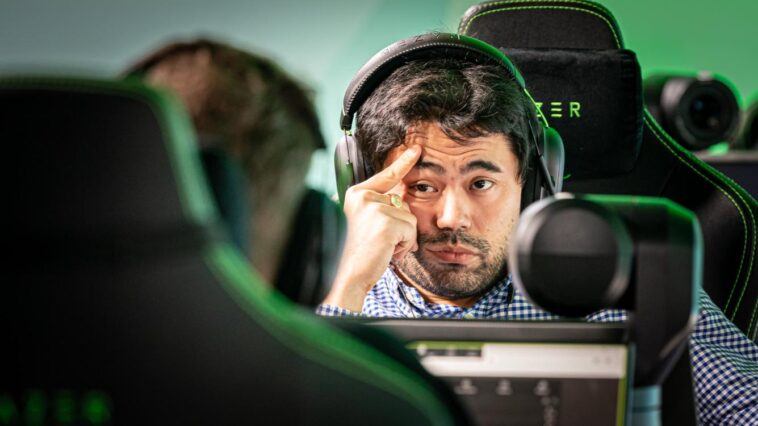Tournament play was conducted exclusively using classical chess
The preferred method of competition play has long been classical chess, also known as “slow chess.” The titanic world championships and Candidates tournaments come to mind when one thinks of famous, illustrious chess encounters because they feature players battling it out for hours on end at the board in a profound intellectual conflict.
Online chess started to take off during the worldwide quarantine brought by by the Covid-19 pandemic, along with faster time limits like rapid and blitz. For the first time, good players could work from the comfort of their homes and engage in almost no social interaction while earning a sizeable salary that was comparable to a living wage.
The chess world has been changing, largely because of its top-tier players and events, and the most recent changes have prompted existential concerns for both tournament directors and competitors.
Is there really a decline in traditional chess? Depending on the data you use, not everybody is in agreement.
The Potential of Blitz & Rapid, Online & Across The Board
Magnus Carlsen, who also excels at rapid and blitz play, was named the world champion in classical chess in December 2022 “At least at the highest level, I think classical [chess] will gradually fade away. I believe that should occur, at the very least.”
Also Read: | POCO X5 Pro 5G: Phone launched with 108MP camera and AMOLED display
He also said he will “have some relaxation, not play classical chess for a little while since I’m kind of weary of it after these few weeks” after coming in tied-second at Tata Steel Chess 2023.
This forecast was reaffirmed by U.S. Champion Fabiano Caruana in a podcast that was broadcast last week. He also discussed how content producers and chess instructors may earn more money than chess professionals, including the best players in the world. “Classical chess is getting phased out within a few years,” he continued, “if the trend continues.”
Online blitz and rapid play offers professional chess players convenience (playing from home! ), more money, quicker play, and less need for preparation.
The most important events in classical chess, like as the world championships, Candidates, Tata Steel Chess, Norway Chess, Sinquefield Cup, and others, have not all survived the spread of quick and blitz competitions, even over the board.
The Covid-19 pandemic has forced the cancellation of yearly tournaments like the Grenke Chess Classic (2013–2019) and Gibraltar Masters (2003–2020), which promised high-level competition. The Gashimov Memorial (formerly known as Shamkir Chess) was formerly a super-tournament for classical chess; as of 2021, it is now a renowned quick and blitz competition. The Grand Chess Tour hosts two classic events each year in addition to three super-GM quick and blitz events.
There are numerous speed chess events for players and spectators on the schedule thanks to the introduction of additional online competitions in addition to numerous possibilities in person.
Online chess: more practical, more lucrative, less time-consuming, and less stressful
Prize money in particular is a significant motivator because chess is often a job, or at the very least a second job, for many grandmasters. Since participating in tournaments frequently involves spending money, internet chess has emerged as a compelling alternative to over-the-board chess.
Unless it is a year for the world championship, speed chess offers more prize money overall each year than major classical competitions. Some facts were provided by Nathaniel Green, who conducted in-depth study on the amount of money awarded in significant competitions (and authored an article here).
When compared to traditional chess, quick and blitz events paid out almost $4 million in 2022 ($1.2 million was offered across the board in the World Rapid and Blitz and Grand Chess Tour events).




